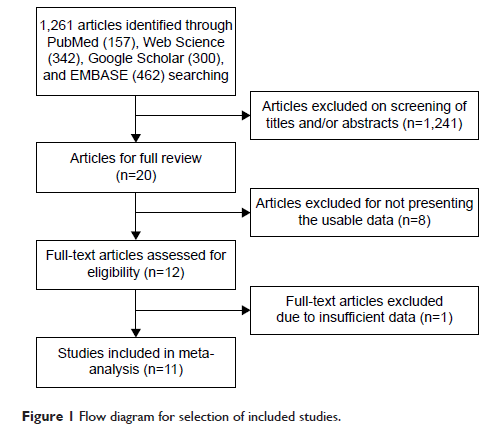109669
论文已发表
注册即可获取德孚的最新动态
IF 收录期刊
- 3.4 Breast Cancer (Dove Med Press)
- 3.2 Clin Epidemiol
- 2.6 Cancer Manag Res
- 2.9 Infect Drug Resist
- 3.7 Clin Interv Aging
- 5.1 Drug Des Dev Ther
- 3.1 Int J Chronic Obstr
- 6.6 Int J Nanomed
- 2.6 Int J Women's Health
- 2.9 Neuropsych Dis Treat
- 2.8 OncoTargets Ther
- 2.0 Patient Prefer Adher
- 2.2 Ther Clin Risk Manag
- 2.5 J Pain Res
- 3.0 Diabet Metab Synd Ob
- 3.2 Psychol Res Behav Ma
- 3.4 Nat Sci Sleep
- 1.8 Pharmgenomics Pers Med
- 2.0 Risk Manag Healthc Policy
- 4.1 J Inflamm Res
- 2.0 Int J Gen Med
- 3.4 J Hepatocell Carcinoma
- 3.0 J Asthma Allergy
- 2.2 Clin Cosmet Investig Dermatol
- 2.4 J Multidiscip Healthc

CXCR4 表达与前列腺癌治疗临床病理意义和潜在药物靶标的关联:一项综合分析和文献综述
Authors Chen Q, Zhong T
Received 9 February 2015
Accepted for publication 10 March 2015
Published 7 September 2015 Volume 2015:9 Pages 5115—5122
DOI http://dx.doi.org/10.2147/DDDT.S82475
Checked for plagiarism Yes
Review by Single-blind
Peer reviewer comments 4
Editor who approved publication: Professor Shu-Feng Zhou
Abstract: CXCR4/CXCL12 axis plays an important role in tumor growth, angiogenesis, metastasis, and therapeutic resistance. The aim of this study is to perform a meta-analysis and literature review to evaluate the association of CXCR4 expression with clinicopathological significance and prognosis in patients with prostate cancer (PCa). A detailed literature search was made in Medline, EMBASE, Web of Science, and Google Scholar for related research publications. The data were extracted and assessed independently. Analysis of pooled data was performed using Review Manager 5.2. Odds ratio (OR) with corresponding confidence intervals were calculated and summarized. The meta-analysis included a total of eleven studies and 630 patients. The rate of CXCR4 protein expression in PCa was significantly higher than in nonmalignant prostate tissues (OR =35.71, P <0.00001). The expression of CXCR4 protein was not significantly associated with Gleason score (P =0.73). However, the frequency of CXCR4 protein expression was significantly higher in T3–4 stage than in T1–2 stage of PCa (OR =2.35, P =0.001). The expression of CXCR4 protein was significantly associated with the presence of lymph node and bone metastasis of PCa: for lymph node metastasis positive versus negative, OR was 5.07 and P =0.0003, and for bone metastasis positive versus negative, OR was 7.03 and P =0.003. Cancer-specific survival of patients with PCa was significantly associated with CXCR4 protein expression, and the pooled Hazard ratio was 0.24 and P =0.002. In conclusion, the high expression of CXCR4 protein is a diagnostic biomarker of PCa, and it is significantly associated with T stages. The increased expression of CXCR4 protein is significantly associated with lymph nodes or bone metastasis, and CXCR4 is a poor prognosis predictor for patients with PCa. Taken together, our findings indicate that CXCR4 could be a target not only for the development of therapeutic intervention but also for the noninvasive monitoring of PCa progression.
Keywords: prostate cancer,CXCR4, CXCL12, prognosis, metastasis
